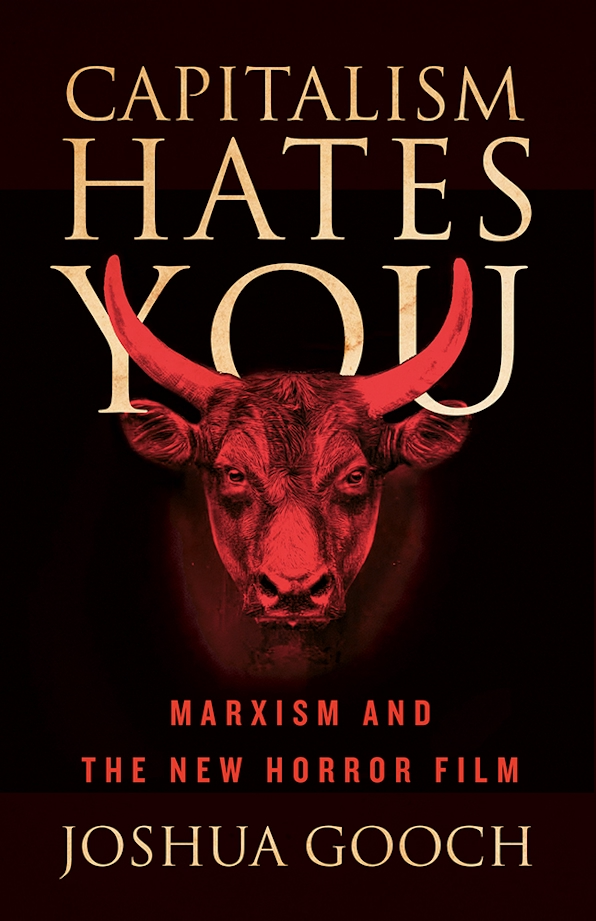 |
| Published by the University of Minnesota Press |
Horror generates a strange cultural fascination with the impure, the toxic, and the monstrous. Joshua Gooch’s “Capitalism Hates You” is an invigorating and deeply unsettling read, especially for someone like me—a casual fan of horror—approaching the book through both personal enjoyment and the lens of political economy and racial capitalism. Gooch’s essays offer a sharp critique of work under capitalism, showing how toiling under capitalism consumes and depletes our lives and essence of being.. In this framework, the ultimate object of capitalism is accumulation of profit, power, and human energies stretched to the breaking – often catastrophic – point.
The book presents a global array of horror titles, illuminating the shared, terrifying experiences of neoliberalism. As people’s worth around the world is reduced to what they can produce, capitalism reveals itself as insatiable; always hungry for individual and collective mental, physical, emotional, and psychic labor. Gooch captures this perfectly when he observes that capitalism “lives parasitically on what is outside its control,” inevitably seeking to consume or destroy whatever resists its reach.
Among the most compelling dimensions of Gooch’s analysis are his attention to marginalized identities. Horror often stages these tensions in unsettling ways, exposing how gendered work (caregiving in Saint Maud) and familial structures (in “Hereditary” and “The Witch”) are both weaponized and threatened under capitalism. Capitalism relies on the subjugation and appropriation of women’s labor and search for fulfillment in a career. The family, Gooch suggests, becomes a crucial site of horror: capitalism hates the protective and nuturiing function of the family because it opposes patriarchy.
Capitalism not only exploits labor but also asserts and reproduces racial hierarchies as a means of maintaining its power. Horror films such as “Candyman” and “Get Out” dramatize this reality, underscoring the entanglement of racist violence, anti-Blackness, and economic exploitation. From a Marxist perspective, these films reveal how racism is not incidental but structural, as characters contend with racial and class divides, legitimizing dispossession and naturalizing inequality in the service of capital accumulation. Racism intersperses with climate anxieties in Gooch’s interpretation of the eco-fascist views reflected in “In the Earth.” These films expose how capitalism feeds on white supremacy and racial terror, turning Black suffering and resistance into sites of horror that reflect fundamental social contradictions.
Horror is more than just entertainment; it offers a critical lens on the anxieties and violences of late capitalism, dramatizing how this economic system thrives on consumption, extraction, domination, and fear. I appreciate how Gooch made these essays accessible and relevant to both fans of the horror film genre and critics of capitalism. People with a background in economic theory would appreciate the review of Marxist thought and contemporary scholars advancing the field. For many readers, the essays may require a close read, as they are written for an academic audience.
“Capitalism Hates You” is cultural criticism and political analysis at their sharpest. The book left me with a deeper appreciation of horror as a tool for recognizing—and resisting—the oppressive structures that shape our lives.
No comments:
Post a Comment